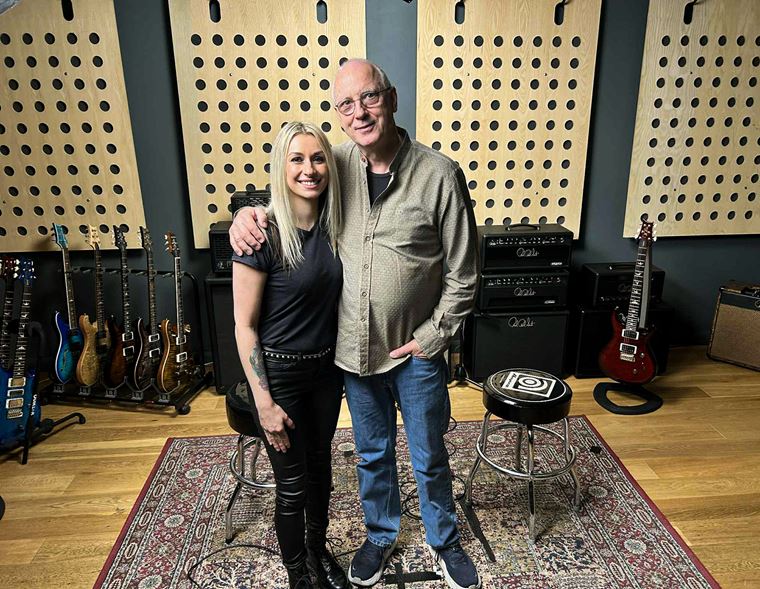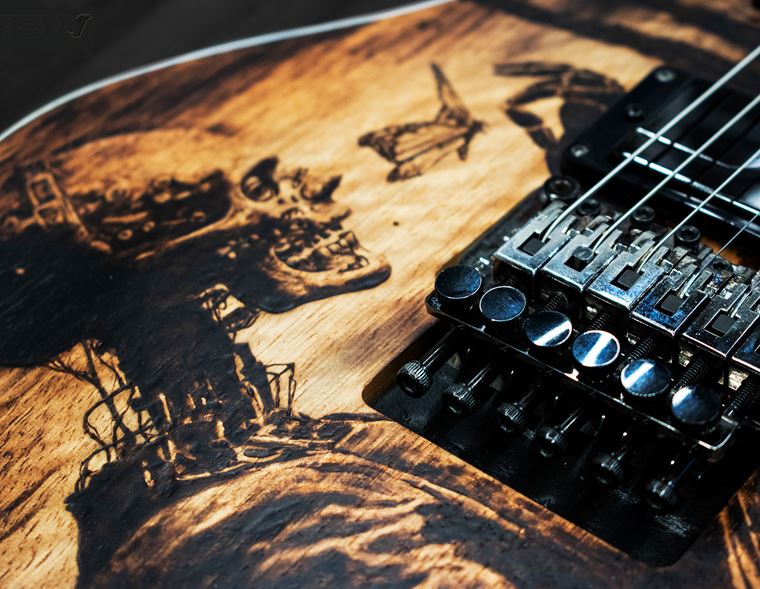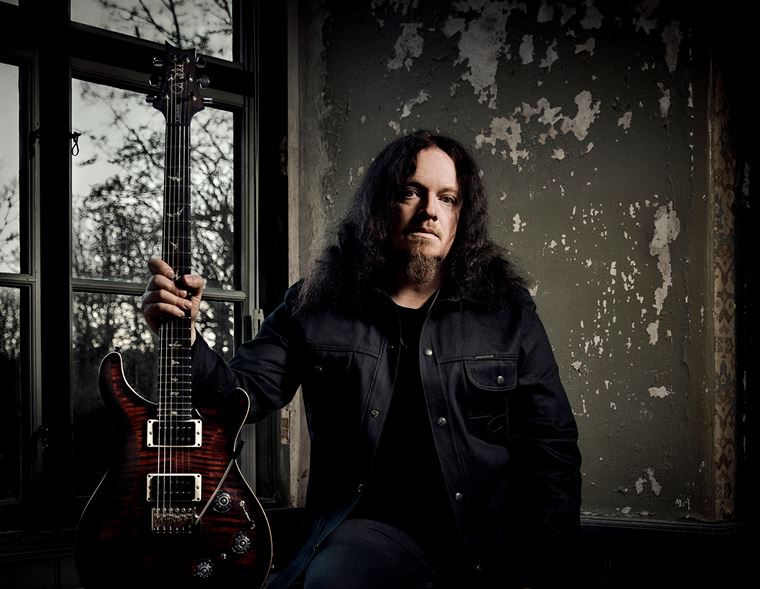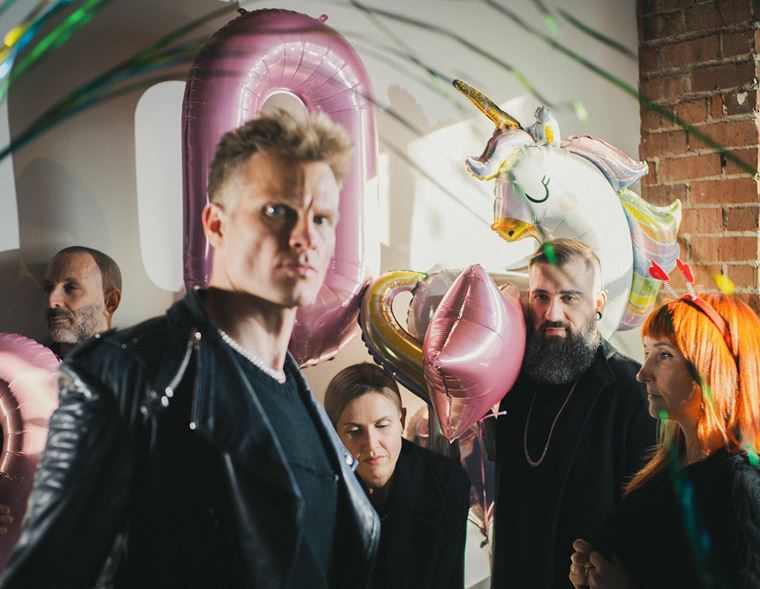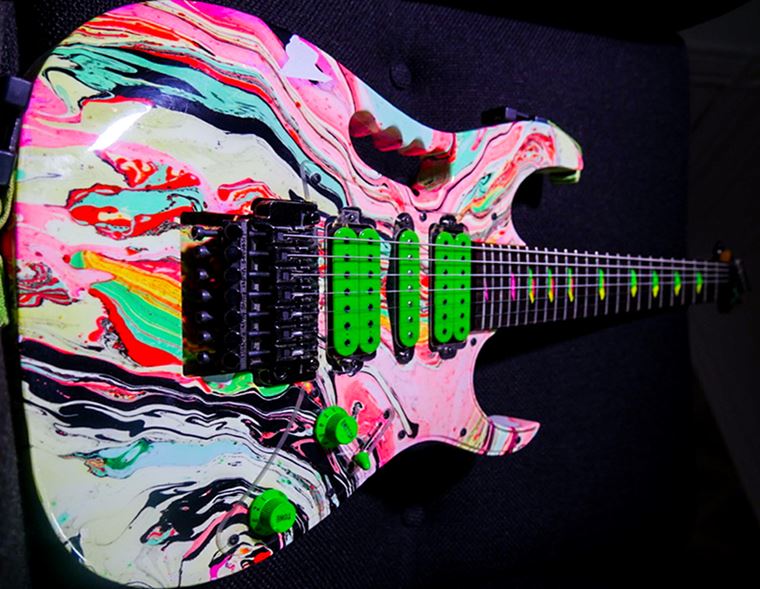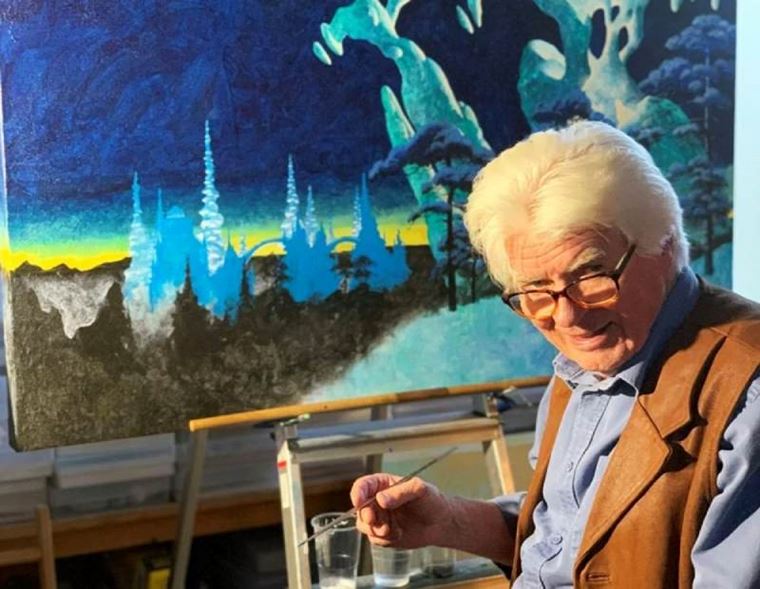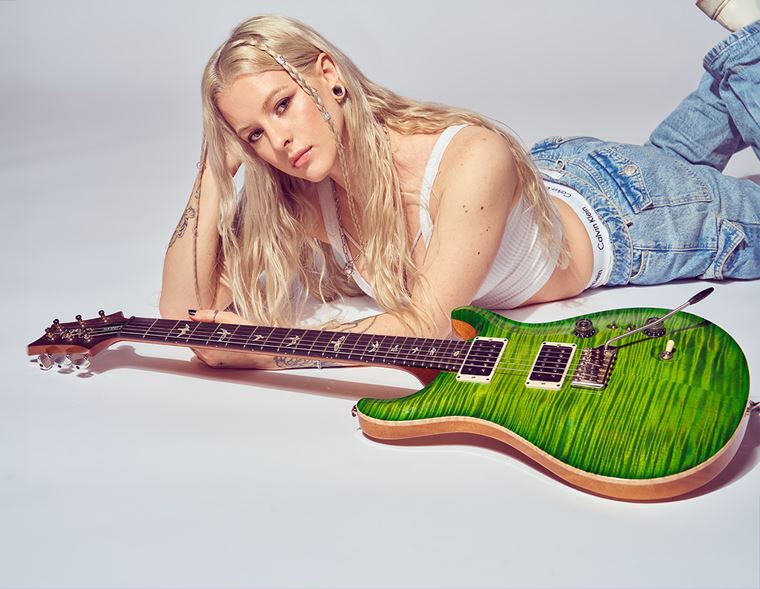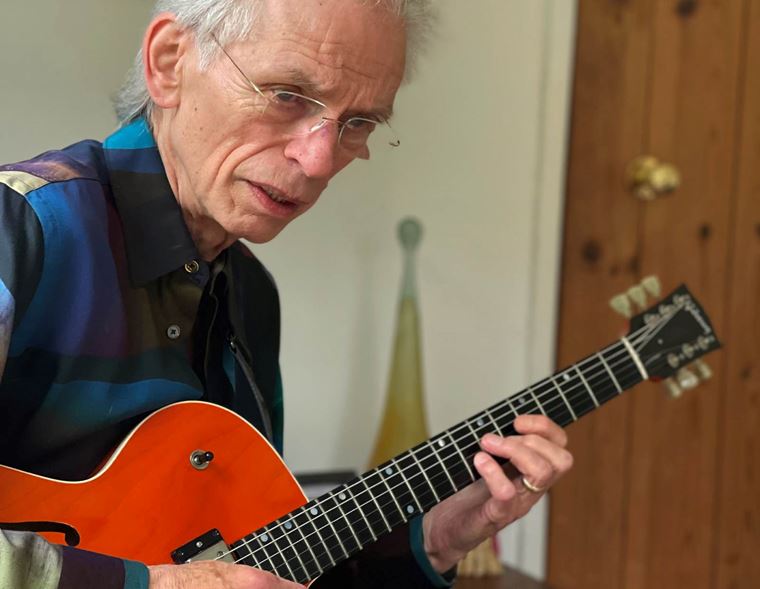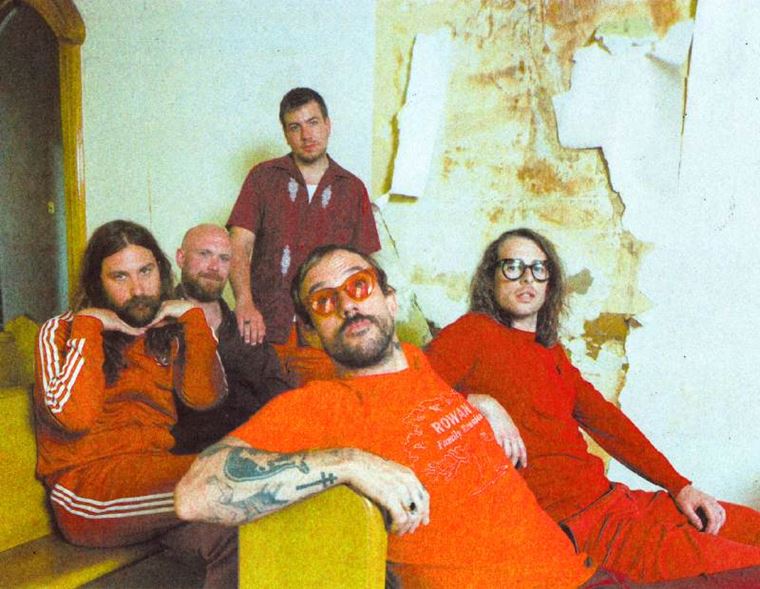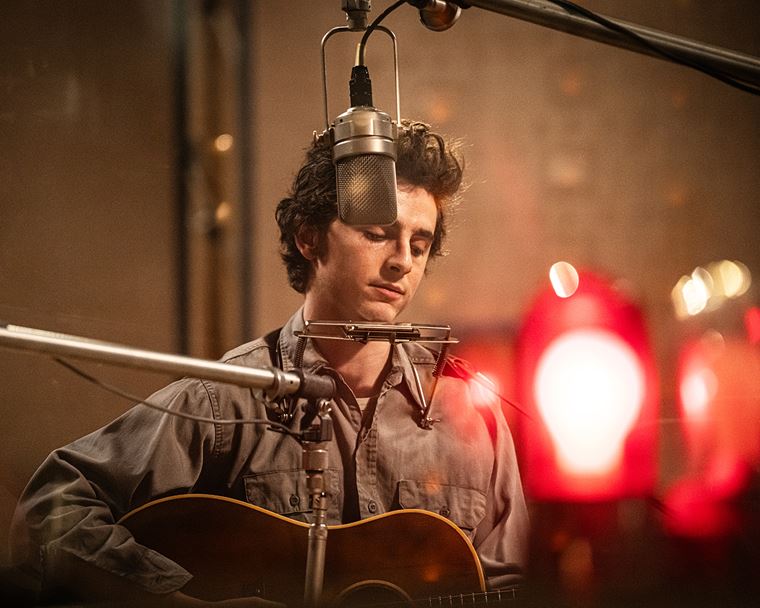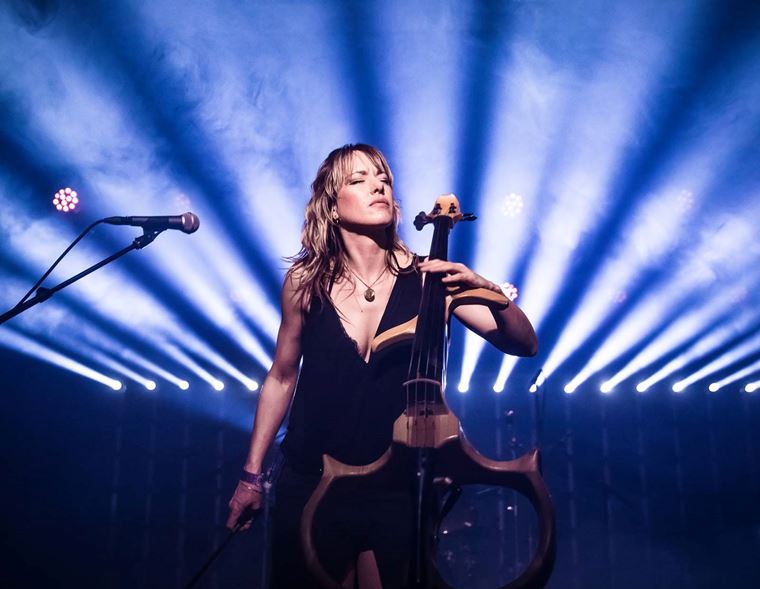The guitarguitar Interview: Godsticks
For fans of interesting, dynamic, hard-hitting Heavy Rock that takes twists and turns, Godsticks should be on your radar. The four piece from Cardiff have taken their Prog-influnecd sound in a variety of different directions over the course of four albums, with their fifth full length release, Inescapable, released this month. This new material sees the group take a slightly more muscular, stripped-down approach to their songcraft: the riffs are still there, as are the time signatures and musicianship, but there is less in the way of layers and textures this time, instead bringing the vocals and riffs to the forefront as never before.
We had an opportunity to ask some quesitons to vocalist and lead guitarist Darran Charles via email. Darran, a formidable player in addition to being a powerful singer, is refreshingly upfront and honest about his artitic process, the challenges involved in making quality music and just why Fender should be making a 7 string Strat!
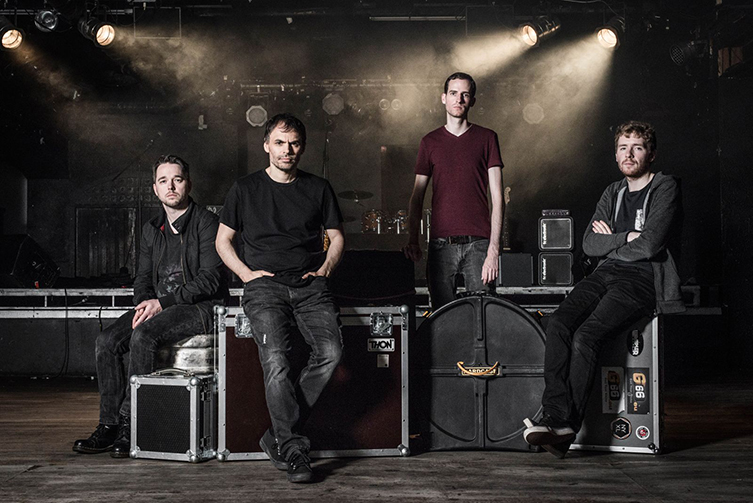
(Photo: Eleanor Jane)
guitarguitar: First off, for those who are new to the band, where does the name ‘Godsticks’ actually come from?
Darran Charles: I wish I had an interesting story, but the initial aim when coming up with a band name was to find one that hadn’t been used before, which as the years go by becomes increasingly difficult! But we discovered during our research that Godsticks were Maori implements of worship.
GG: Your new record, Inescapable, has just been released. Although heavy, there is a lot of ‘space’ around the music in the recording. Do you find that to be an important factor in the band’s sound?
DC: For this album yes, but on previous albums that hasn’t been the case. I suppose the fact you’ve picked up on it has indicated that perhaps we accomplished what we set out to achieve, because ensuring the songs sounded more spacious was our objective during the writing and recording of this album.
Previously I thought that the layered arrangements were the band’s calling card, but even after we’d stripped back the songs to just the core rhythm section, we still ended up sounding like us!
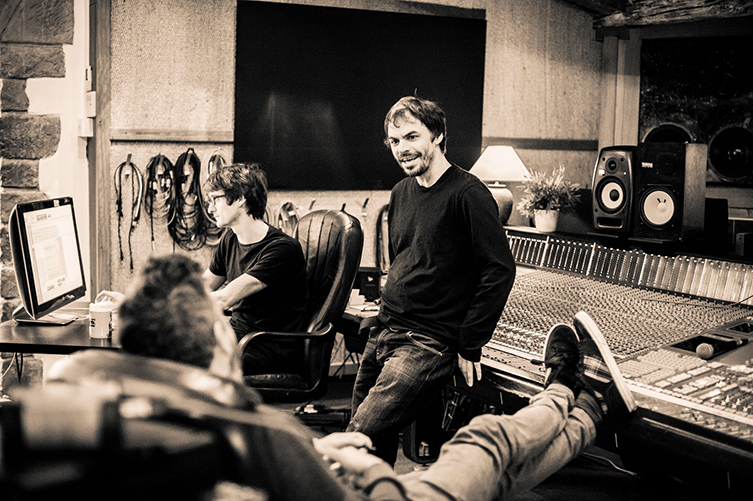
GG: Some of your lyrics deal with paranoia and self control, along with certain other mental health issues. Would you say that you come to music as a form of catharsis as much as for expression?
DC: Music is cathartic, but it’s also often extremely challenging, as I constantly feel the need to improve and develop as a musician. There are ideas I hear in my head that sometimes I’m unable to express on the instrument or in a song because I’ve not yet developed the practical knowledge how to do so. So, I’m constantly studying in order to equip myself with the tools that will unlock these ideas and translate them into our songs and/or into my guitar playing. But all this work is made worthwhile when I’ve finished a song; that’s the biggest reward for me.
GG: This record is chock-full of chunky riffs: do you tend to keep a stockpile of riffs saved away on a hard drive or whatever for using in songs?
DC: I have a virtual folder subdivided into years that contain all the song and riff ideas I’ve ever come up with. I even keep the ideas that don’t work out in a folder called ‘Shite’! If I’m struggling during the writing of a song then I may delve into these folders for ideas, but I’ve discovered over the years that it’s usually impossible to shoehorn in another idea into a work in progress - either a song forms organically over time or it doesn’t. No matter how long it takes, if there is even the tiniest hint of something musically exciting I will work and work at developing it. Very rarely do I give up and this approach, whilst exhausting sometimes, has served me well.
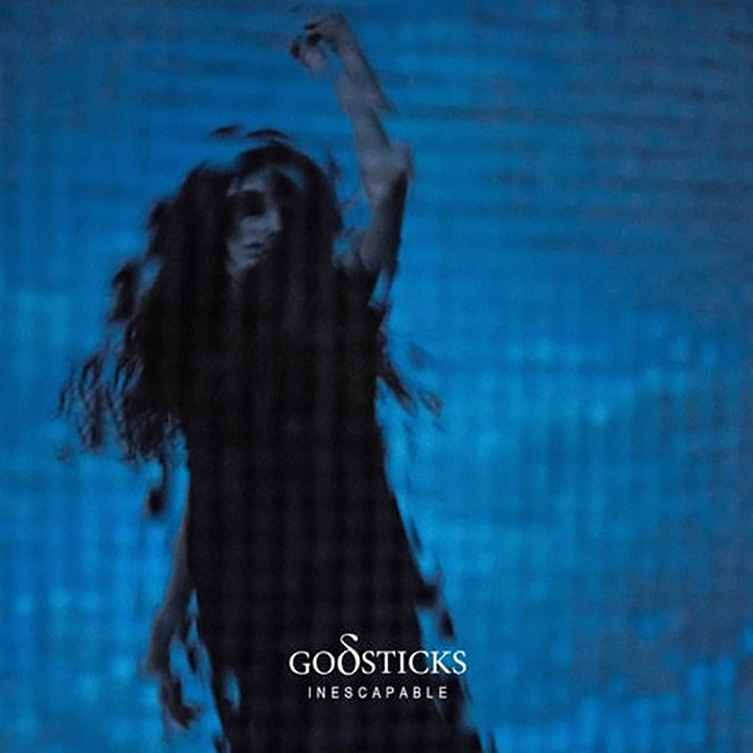
GG: When you sit down to play, do you consciously think: ‘time to write a song’, or do you simply play and remain mindful of what might come out?
DC: Even though inevitably I end up noodling at some point, I always sit down with the intention of practising, studying, or writing. Sometimes a song idea will emerge based on something I’ve been studying, and indeed if something I’ve played grabs my attention the record button is always nearby.
It’s when I have a germ of a song idea that I will sit down and try to develop it, and that’s where days, weeks, but more often, months are lost. I like to have a couple of songs on the go simultaneously so that I can move onto different things if I hit a brick wall. I find that returning to a song that I haven’t worked on in a month gives me fresher perspective, and I can usually identify why I hit that brick wall in the first place.
GG: You are clearly a really good player: do you still have to make time to practice?
DC: I always try to find time to practise every day and take a guitar on holiday too! I practice because I think it’s important to improve and evolve, and there are still many things I cannot yet do on the guitar that I think would benefit our music and my playing.
I also have no choice but to practise because the things we write are out of our comfort zone. Lots of solos, riffs and melodies emerged as the result of recording improvisation. When I improvise – be it over a chord progression, metronome, or drum pattern - I’m very free with what I play and attempt things I’m physically incapable of playing properly. That may sound odd, but it’s upon listening back to the recording that I begin to understand what I wanted to play and then use my sense of melody to work out what I would like to hear. If it’s a difficult part and messy, which it quite often is, then I use a piece of software to slow it down, transcribe it, and fill in the blanks so to speak. Then I practise how to play it properly. What this means is that I’m never limited by what I’m physically or technically capable of at any given time.
I suppose that’s my writing approach in a nutshell: I spew out lots of ideas and mould them into something I would like to listen to.
GG: Let’s talk about guitars. What’s your current number one guitar?
DC: My most important guitar is my custom Charvel 7-string San Dimas: that’s my main live guitar and one that I could not do without due to the extended range of many of our songs. I must give a shout-out to my Vigier Excalibur 7-string though, as this is the guitar I record most of our albums with. The playing experience with the Vigier isn’t as rewarding as the Charvel because the 10/90 system’s carbon-reinforced neck adds a bit of uncomfortable tension, but it records unbelievably well. The zero- fret gives a consistency of volume to open strings too, which makes for even sounding rhythm parts.
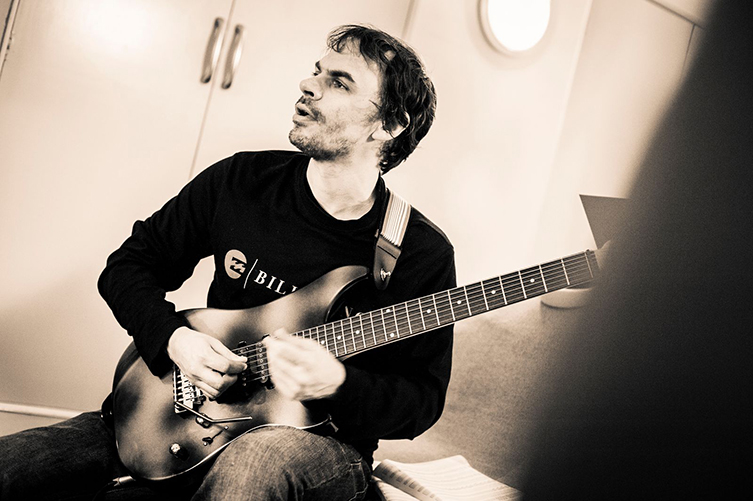
I use quite a lot of guitars on the album though: a PRS Mccarty Soapbar for clean/slightly dirty sounds; a PRS Custom 24 for solos; a maple neck US Telecaster; the list goes on! It’s safe to say that I love guitars!
GG: As a man who makes use of 7 string guitars, would you say that the major guitar companies maybe focus too much on ‘metal’-styled 7 strings?
DC: Personally yes, but from a business point of view I understand their thinking completely, as the non-metal playing 7 (or 8) string guitar players would be a very niche market to cater for. I think companies like Strandberg are realising that extended range guitar players are not solely the domain of the metal player, but whilst they have a broader approach, their uniquely shaped neck does not have universal appeal.
I’ve always said that if Fender released a 7-string Strat I would be the first in line but that scenario is unlikely to develop any time soon. This is the reason I had no option but to commission a custom build, because the only production 7-string guitar that didn’t have a Floyd Rose was the Vigier which, as I mentioned earlier, I’m not fond of playing live. I also wanted something with a basswood body and maple top. Basswood I’ve always found to provide a very EQ response, whereas the maple cap adds that little bit of brightness. It’s a great combination.
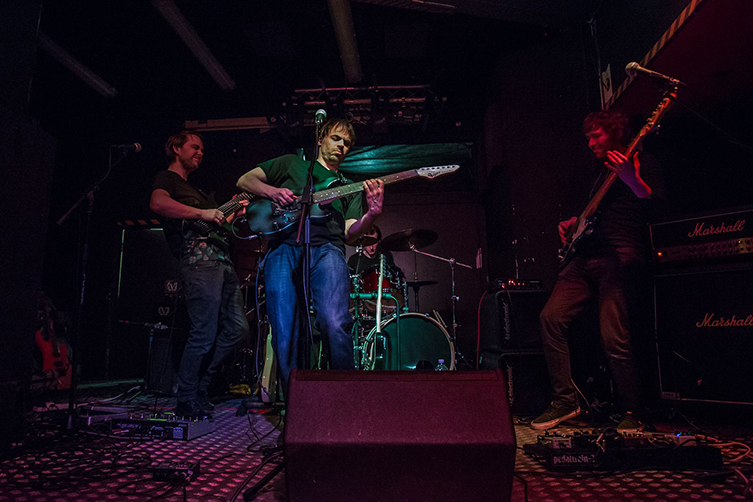
The pickups on extended range guitars are usually a little too high-output for my tastes too. I think the new Djent guitarists demonstrate quite well with their use of split coils that high-output pickups aren’t necessary to promote that low B string.
GG: You review gear for some of the guitar mags: has this changed how you approach both gear and the guitar as an instrument?
DC: I’ve learned a lot more about instruments and amplification since writing for the mag because of the wide variety that I’m given to review. It’s also forced me to be patient with instruments because previously, if I didn’t bond with a guitar immediately then I would dismiss it fairly and unreasonably quickly.
Doing the video reviews has benefited my playing quite a lot too. With the video demos my approach is to write a piece of music that best demonstrates the guitar’s use in the musical genre for which it was intended, and this often makes it necessary for me to study a particular style in greater detail. For example, I demoed a PRS Brent Mason signature guitar for Guitarist Magazine many years ago and I remember spending 5 intensive weeks studying the style of Brent Mason. It certainly benefitted my playing and furthermore I was able to demonstrate if that guitar was fit for purpose, so to speak (which it most definitely was!).
GG: Does your live rig differ from your studio setup?
DC: It used to, but not these days. In the studio I exclusively use an Axe Fx III, and for live work I use its offspring, the AX8. I’m very pleased with the digital live set-up; for me, it eliminates so many headaches and is convenient without compromising my tone (in my view). It’s by far the best sound I’ve had live and given that I’ve always struggled to hear my valve amp and cab live, I find that I don’t miss it.
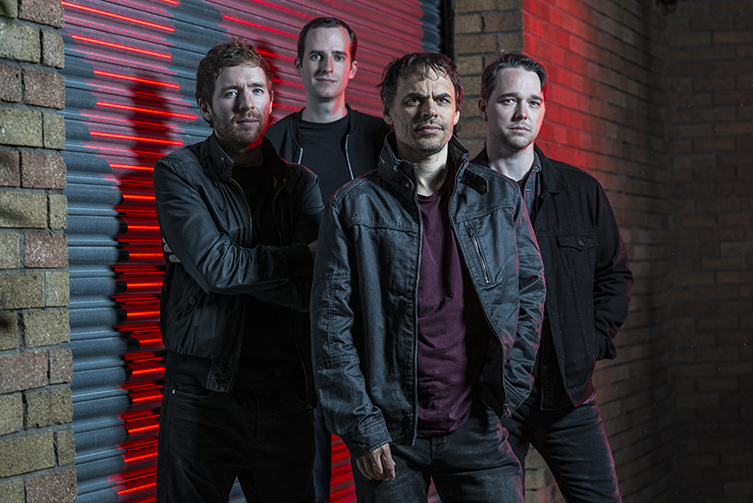
GG: What string gauge do you prefer? And what plectrums do you like to use?
DC: I’m glad you asked this: its question that is often eschewed these days because it’s incorrectly viewed as cliched. I am always interested to know what picks and strings guitar players use!
I recently made a decision that was as momentous as having to choose which of your children to give up for adoption: after 20 years of using gauge 9 – 46 I had to decide whether to switch to 10s. In the end though, I decided to give up the child instead.
Just kidding, but for the last twenty years or so I’d been using 9-46 for guitars with a trem system, and 10s with a fixed bridge. I used 10s on a fixed bridge because it doesn’t have the added tension you get with a floating tremolo, so lighter gauge strings tended to feel too loose. Over the last few years however, I’ve been more comfortable using 10s, and often flirted with the possibility of putting them on trem-equipped guitars. However, I was always worried that 10s might take away some of the fluidity of legato lines which is a feature of my playing, so I never made the switch….until now! So far, so good.
I’ve been using Dunlop XL Jazz III plectrums for the last ten years. They are the best all-rounder in my opinion, so its unsurprising why so many guitarists use them.
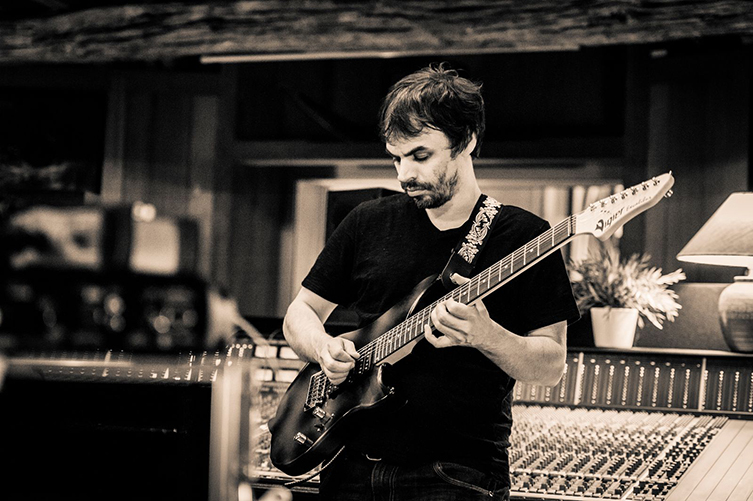
GG: Growing up, who were your main guitar playing influences?
DC: Steve Vai was always my biggest influence: I was obsessed with his playing growing up. He had everything: technique, tone, weird melodies. He’s also a great rhythm player.
I also loved Marty Friedman and still think of him as the best metal soloist out there.
But it was the guys at the Guitar Institute in London that really opened my eyes and ears, and it was they who caused me to devote attention to all aspects of my playing and indulge in lots of different styles. Those guys I would say were a huge influence, especially Shaun Baxter.
GG: Finally, now that the album is released, what are your plans for 2020?
DC: Tour, tour, and tour some more! We have 4 UK dates lined up in April in Cardiff (2nd, at Fuel Rock Club), London (3rd, at Black Heart), Manchester (4th, at Gullivers), and Edinburgh (5th, at Opium) as well as quite a few festival dates, but we’re intending to add many more throughout the year.
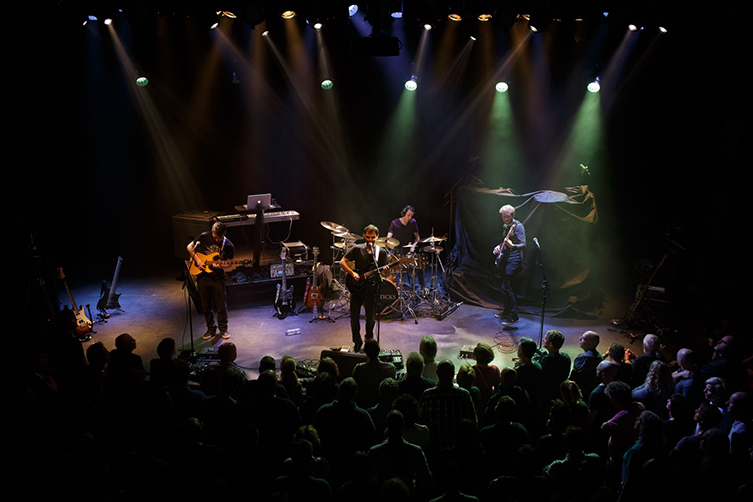
(Photo: Zoe Termeer)
Inescapable is out now on Kscope records. Godsticks are touring the UK in April, please see above for the dates and jump across to the Godsticks official site for ticket links and more on the band.
We'd like to thank Darran for his time, and to Simon for setting us up.
Thanks for reading!


